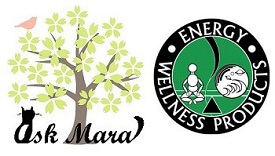 What is Acne? According to the Mariam Webster Dictionary,
What is Acne? According to the Mariam Webster Dictionary,
“it is a disorder of the skin caused by the inflammation of the skin glands, hair and hair follicles and is largely found in adolescents.”
It is hard to believe but acne affects nearly 17 million people and is considered to be an inflammatory skin disorder that is most commonly treated. You, like myself, at one point during your life probably dealt with acne concerns. Blackheads, whiteheads, pimples, and cysts are the different types of lesions associated with acne. It develops when the pores or glands in the skin become clogged and occurs by the over-production of oil known as sebum, and the irregular shedding of dead skin cells. These two things create an irritation to the hair follicle which can often lead to a build-up of bacteria. Your doctor can examine your skin and determine that the lesions you have are acne. Some lesions may appear to be acne be something else.
What Causes Acne
The cause is unknown, yet many believe the following contribute to acne.
- Hormones seem to be the biggest contributor. It appears that the production of the oil sebum increases as our hormones surge. This would explain why acne is noticed more in adolescents and is prevalent in women prior to their menstrual cycle or during menopausal years.
- Allergies
- Heredity
- Stress
- Sometimes it can be the result of taking certain types of medications
- Poor diet that is high in saturated and hydrogenated fats
- Environmental toxins causing the detoxification systems of the body to become sluggish
- An imbalance in your pH
Some or any combination of the above may be contributing to your acne.
Help for Acne
The skin is the body’s largest organ. One of its functions is to help the body eliminate toxins through perspiration. If our bodies contain more toxins than our kidneys and liver can effectively discharge, then our skin takes over. Some doctors have even referred to the skin as the “third kidney”. As the skin works hard to eliminate the overflow of toxins the integrity of its health can be disrupted. How many of you have heard the phrase “let your skin breathe”, I don’t think clogged pores allow the skin to breathe like it should.
Looking at the above list of contributors to acne, drinking more water will keep your body properly hydrated and should help with the elimination of toxins. Exercising is known for helping in keeping your lymph system moving and is also very helpful in managing stress. You might also consider making some dietary changes. Dietary changes are not only good for your skin, they are good for your health overall. So grab a piece of fruit or some carrots and celery sticks next time you’re hunting for a snack.
There are also some supplements that can assist your body. Burdock and Dandelion Root are great herbs for supporting the liver and kidneys and also assist the body with cleansing. You can try some Detox Tea and make sure Burdock and/or Dandelion are two of the ingredients. Essential oils of Chamomile can help with inflammation and Patchouli has regenerative as well as anti-bacterial properties and can also help with acne. Just make sure to properly dilute the essential oils before applying them topically, in fact, I like to dilute them in Aloe Vera or Silver Shield Gel.
Related Herbal Products
Silver Shield Gel: A clear cosmetic gel product that has been shown to be an effective cleaning agent, which promotes natural hydration and gently moisturizes the skin.
Skin Detox: A supplement that helps pull toxins from the skin and may relieve skin dryness and non-cystic acne.
